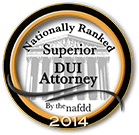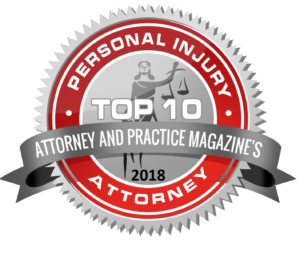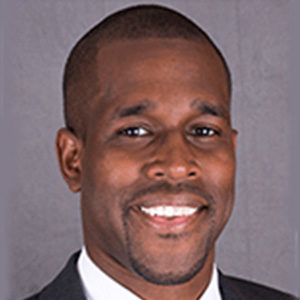Bus accidents can have devastating consequences, often leading to significant injuries and even fatalities due to the sheer size and weight of these vehicles. When a bus accident occurs, determining liability is crucial to ensure that victims receive appropriate compensation for their losses. Liability in bus accidents can be complex, involving multiple parties such as the bus driver, the bus company, other motorists, and even governmental entities. Understanding who is at fault requires a thorough investigation and a keen understanding of traffic laws and regulations. This comprehensive analysis aims to shed light on the intricate process of determining liability in bus accidents and to guide victims in seeking justice.

The Role of the Bus Driver
The bus driver is often the first person scrutinized when determining liability in a bus accident. Drivers are expected to adhere to strict standards of conduct and safety while operating a bus. This includes obeying traffic laws, maintaining control of the vehicle, and ensuring the safety of passengers and other road users. If a bus driver is found to have been negligent, such as by speeding, driving under the influence, or being distracted, they can be held liable for the accident. Driver fatigue is also a common issue, as bus drivers often work long hours, leading to impaired judgment and slower reaction times. Proving driver negligence requires gathering evidence such as witness statements, surveillance footage, and the driver’s work records. It is essential to demonstrate that the driver’s actions directly contributed to the accident.
Bus Company Responsibility
In many cases, the bus company can be held liable for accidents involving their vehicles. Bus companies are responsible for ensuring that their drivers are properly trained, that their vehicles are well-maintained, and that all safety protocols are followed. If a bus company fails in these duties, they can be found negligent.
For instance, if an investigation reveals that a bus was not regularly inspected or that necessary repairs were not made, the company can be held accountable. Similarly, if a company hires a driver with a poor driving record or fails to provide adequate training, they can be deemed responsible for any resulting accidents. The principle of vicarious liability often applies, where employers are held liable for the actions of their employees if those actions occur within the scope of employment.
The Impact of Other Motorists
Liability in bus accidents is not always confined to the bus driver or the bus company. Other motorists on the road can also be at fault. For example, if a car cuts off a bus, causing the bus driver to swerve and crash, the driver of the car can be held liable. Determining fault in these situations often involves reconstructing the accident scene and analyzing traffic patterns, witness statements, and vehicle damage. It is crucial to identify any actions by other drivers that may have contributed to the accident. This includes speeding, reckless driving, or failing to yield the right of way. Establishing the role of other motorists requires meticulous investigation and often the experience of accident reconstruction specialists.
Governmental Entities and Road Conditions
Sometimes, liability in a bus accident can extend to governmental entities responsible for road maintenance and safety. Poor road conditions, inadequate signage, or malfunctioning traffic signals can contribute to accidents. If it is found that a governmental entity failed to maintain safe road conditions or did not address known hazards, they can be held liable.
Proving this type of liability involves demonstrating that the entity knew or should have known about the hazardous conditions and failed to take appropriate action. This can be challenging due to the doctrine of sovereign immunity, which protects government agencies from certain types of lawsuits. However, exceptions exist, and an attorney can navigate these complexities to hold the appropriate parties accountable.
Passenger Conduct and Liability
While it is less common, passenger conduct can sometimes play a role in bus accidents. Passengers are expected to behave in a manner that does not distract or interfere with the driver. If a passenger’s actions, such as standing up unexpectedly, causing a commotion, or distracting the driver, contribute to an accident, they may be partially liable. Establishing passenger liability involves proving that their conduct directly affected the driver’s ability to operate the bus safely. This typically requires witness statements and possibly surveillance footage from inside the bus. Although passengers are not usually the primary focus in liability cases, their behavior can be a contributing factor.
Mechanical Failures and Manufacturer Liability
Bus accidents can also result from mechanical failures, such as brake malfunctions, tire blowouts, or steering issues. When a mechanical failure is the cause of an accident, liability may fall on the manufacturer of the bus or its parts. Manufacturers are responsible for ensuring that their products are safe and free from defects. If it is found that a defect in the bus or its components caused the accident, the manufacturer can be held liable under product liability laws. Proving manufacturer liability involves demonstrating that the defect existed at the time of manufacture and that it directly caused the accident. This often requires the experience of engineers and other professionals who can analyze the mechanical aspects of the bus.
Choosing a Personal Injury Attorney Personal Injury Case TimelineRelated Videos
Determining Comparative Fault
In many bus accident cases, multiple parties may share liability. This is where the concept of comparative fault comes into play. Comparative fault, or comparative negligence, is a legal principle that allocates responsibility among all parties involved based on their degree of fault. For instance, if both the bus driver and another motorist were found to be negligent, the fault can be divided between them. The percentage of fault assigned to each party affects the amount of compensation victims can receive. Understanding comparative fault is crucial in ensuring that all responsible parties are held accountable and that victims receive fair compensation for their injuries and losses.
The Importance of Thorough Investigation
Thorough investigation is the cornerstone of determining liability in bus accidents. This process involves gathering and analyzing various forms of evidence, such as police reports, witness statements, surveillance footage, and testimony. Accident reconstruction specialists play a vital role in piecing together the sequence of events leading up to the accident. Their analysis can provide critical insights into the causes and contributing factors of the accident.
Additionally, obtaining records from the bus company, such as maintenance logs and driver training records, can reveal any lapses in safety protocols. The complexity of these investigations underscores the need for experienced legal representation to navigate the myriad details and ensure a comprehensive understanding of the incident.
Legal Framework and Regulations
Bus accidents are governed by a complex web of federal, state, and local regulations. The Federal Motor Carrier Safety Administration (FMCSA) sets standards for bus safety, including driver qualifications, vehicle maintenance, and hours of service. State laws also play a significant role in regulating bus operations and determining liability. Understanding these regulations is crucial in establishing fault and pursuing compensation. Legal professionals specializing in bus accident cases must be well-versed in these laws to effectively advocate for their clients. This regulatory framework ensures that bus companies and drivers adhere to stringent safety standards, thereby reducing the risk of accidents.
Seeking Justice and Compensation
Victims of bus accidents often face significant physical, emotional, and financial hardships. Seeking justice and compensation involves filing a personal injury claim against the responsible parties. This process can be daunting, given the complexities of determining liability and navigating legal procedures. Compensation may cover medical expenses, lost wages, pain and suffering, and other related costs. In cases of severe injury or wrongful death, victims and their families may be entitled to substantial damages. An experienced attorney can guide victims through the legal process, ensuring that their rights are protected and that they receive the compensation they deserve. It is essential to act promptly, as there are statutes of limitations that dictate the timeframe within which a claim must be filed.
Determining liability in a bus accident is a multifaceted process that requires meticulous investigation and a deep understanding of legal principles. If you or a loved one has been involved in a bus accident, seeking professional legal assistance is crucial. At NovaLegalGroup, P.C., our dedicated team of attorneys is committed to providing compassionate and effective representation. We understand the challenges faced by bus accident victims and are here to help you navigate the complexities of your case. Contact us today for a free consultation and let us help you secure the justice and compensation you deserve.










